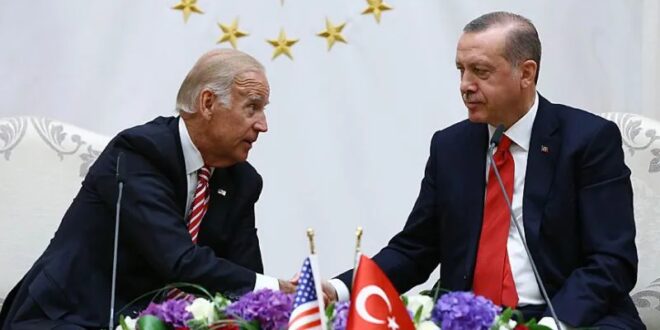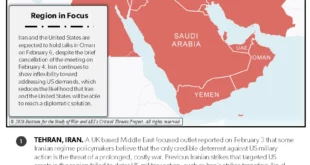There are some countries where a single predicament highlights what is wrong with their internal and foreign affairs. Turkish President Recep Tayyip Erdoğan’s threat to expel 10 Western ambassadors has been withdrawn: Turkey though is still experiencing a continuous human rights crisis.
The joint statement by the ambassadors of the U.S., Canada, France, Germany, Denmark, Netherlands, Finland, Sweden, Norway, and New Zealand calling for the release of billionaire activist Osman Kavala was an alarming reality check.
Kavala is accused of involvement in the 2016 failed coup attempt as well as financing and organizing the 2013 Gezi Park protests in Istanbul.
Turkish courts detained him in prison without conviction, disregarding the European Court of Human Rights ruling for his release, fuelling the dispute with Western countries that are deeply concerned about the human rights situation.
Back in 2020, Joe Biden – then presidential candidate – called the Turkish leader an “autocrat” who should “pay a price” for his repression. Ankara was then quick to condemn the comment as “interventionist.”
On October 31st, 2021 President Biden met with Erdoğan – the second time in five months – on the sidelines of the G-20 summit in Rome. “The President made clear his desire to have constructive relations with Turkey and to find an effective way to manage our disagreements,” as told to reporters by a senior staff member from the Biden administration.
Amongst topics discussed were human rights and Turkey’s request to purchase 40 F-16 and nearly 80 modernization kits for existing fighter jets. Notably, both topics are interrelated since weapons sales on repressive regimes are incompatible with US foreign policy. In fact, bilateral relations between the United States and Turkey have been long strained over human rights.
“We’re going to keep raising these issues because that’s who we are as a country, that’s who I am as a president,” said Biden to Erdoğan, as U.S. National Security Advisor Jake Sullivan has claimed.
Sullivan added: “Whatever friction it may cause, it will not deter us from speaking out on these issues publicly and directly raising our concerns.”
In relation to the F-16s, Biden was “very clear that there was a process underway that we had to go through,” according to an American official who spoke on condition of anonymity.
The Turks sent a Letter of Request (LOR) for the F-16s two years after Congress blocked the sale of F-35 fighter jets to Turkey after the latter defied Washington by purchasing a Russia-made S-400 missile system.
Days after the F-16s formal request, the Turkish side warned that US denial would result in them buying warplanes from “other sources.”
Turkish Foreign Minister Mevlüt Çavuşoğlu said, “if the U.S. does not want to sell [F-16s] … or if the Congress blocks such a sale, then we will move on to other options including the Su-35 and Su-57, as noted by Defense Industry President İsmail Demir. We will procure our needs from other sources until we start to produce them on our own.”
A total of 41 members of the U.S. House of Representatives subsequently sent a letter to Secretary of State Antony Blinken opposing the F-16 sale. “Even considering Turkey’s LOR, under the present circumstances sends the wrong signal to Turkey and gives it reason to doubt our resolve while continuing to develop its military relationship with Russia,” the representatives argued.
U.S. Senator Lou Raptakis said “if [Erdoğan] wants to also pick a threat about going to the Sukhoi-57 or any other warplane, then probably Congress is going to deny any spare parts, any kits to operate the F-16s and all the F-16s that Turkey has, will become obsolete.”
The Biden administration is faced with a blatant Turkish threat that may widen the rift between the two countries. However, Washington’s possible rejection of the F-16 deal wouldn’t necessarily lead to Turkey forming a tight pact with Russia, as they have competing interests colliding in several fields.
Recent events in Ukraine are a prime example: Turkish-made UAVs were used against Russian-backed separatists, forcing the Kremlin to issue a warning regarding the ongoing Turkish arms sales to Ukraine.
Turkey knows too well that falling outside NATO’s protective umbrella, or losing NATO’s will to support its members under the collective defense Article Five, would seriously affect its national security. It is therefore debatable that Erdoğan is seeking a rejection in order to intimidate the U.S. and justify the purchase of warplanes from Russia whilst “staying put in NATO” (as Turkish Defense Minister Hulusi Akar previously declared).
A former Pentagon official indicates that, “allowing Erdoğan to erode CAATSA without first forfeiting his dealings with Russia’s military industry could have far-reaching repercussions.”
Analysts also argue that the lingering unwillingness to adopt strong proactive measures against Turkey – further to F-35 program expulsion – led to the point where a regional state threatens and dictates US foreign policy, simultaneously undermining NATO unity by generating new tensions. Failure to act would amount to geopolitical malpractice for President Biden and his team in the ongoing great power rivalry.
The Biden administration should therefore send clear signals by applying firm political and economic pressure, resetting the U.S. diplomatic relationship with Turkey, whose role as a NATO member is under sharp scrutiny anyway.
Excluding Turkey from Biden’s “Summit for Democracy” is hardly a blow to Erdoğan – known prolific jailer of intellectuals, journalists and political dissidents – whose authoritarian regime is nowhere near a liberal democracy. This half measure is the equivalent of trying to tame a bull with a feather. After all, it is the same Erdoğan who once claimed that democracy is like a train; you get off once you have reached your destination.
The West is still turning a blind eye to repeated public outcries: “There’s no freedom of thought, separation of power, or independence of courts in Turkey. We want freedom of thought before we can talk…” said the Turkish Nobel laureate novelist Orhan Pamuk, who confirmed that a Damocles sword hangs over you every time you exercise the freedom of speech.
The Committee to Protect Journalists reported that Turkey was the world’s second worst jailer after China in 2020, and almost every journalist jailed faced anti-state accusations. At the end of the day, this is a country where historically its human rights associations were viewed by state officials – irrespective of the government and political party in power – as an antagonistic threat undermining state policies and sovereignty. Perhaps Turkish nation-building was inherently flawed in this aspect – realized as a “clash of civilizations” by some – thus the problems will persist even after Erdoğan’s reign. White-washing by the hyperactive well-paid Turkish lobby in Washington DC will certainly not fix them.
Is America really “back”? If so, recalibrating hitherto unproductive efforts and forcibly obliging Turkey – a NATO member – to improve its disturbing human rights records would represent a step forward. Utilizing the decision on the F-16 sale may equally prop up Washington’s global credibility before other regional actors seek to follow in Turkey’s footsteps.
 Eurasia Press & News
Eurasia Press & News




